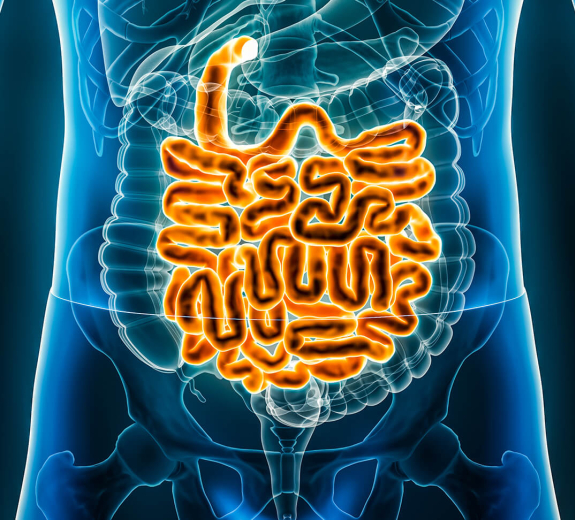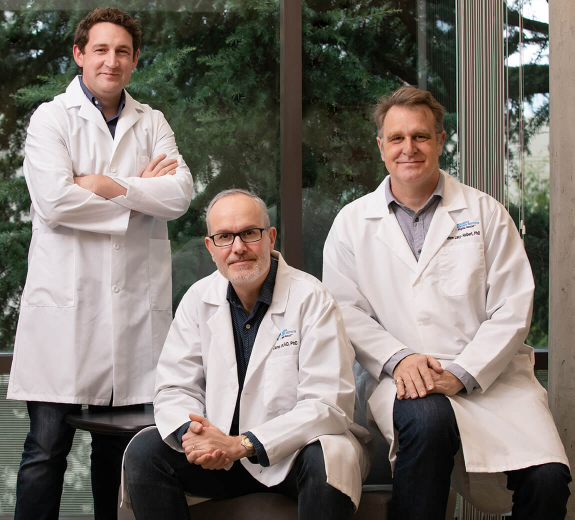Adam Lacy-Hulbert, PhD, was reading through the latest scientific papers when one finding stopped him in his tracks: Groups from Kyoto University and Mount Sinai described an autoantibody specific to people with ulcerative colitis (UC). A telltale sign of autoimmune disease, autoantibodies are evidence that the body is making proteins that attack its own tissues. This caught his attention for two reasons.
“First, the autoantibodies seemed to be attacking a group of proteins called Alpha-V integrins, which I’ve studied for 25 years,” Dr. Lacy-Hulbert says. “And second, the autoantibody was present as much as a decade before people were actually diagnosed with UC.”
He quickly looped in James Lord, MD, PhD, a fellow investigator in BRI’s Gut Immunity Program who is also a gastroenterologist. They started examining samples from BRI’s biorepository, and within days, they found the same autoantibody. This launched new research questions such as: Can we target this autoantibody to stop UC before it starts?
“This is a brand new line of inquiry, but in some ways, we’re 20 years in,” Dr. Lacy-Hulbert says. “We have excellent lab models. We have a robust library of patient samples that will allow us to jump right in and investigate new questions. We hope this will lead to some really exciting breakthroughs.”
They’ll start by using a lab model Dr. Lacy-Hulbert built to study Alpha-V integrins to answer a crucial question: Do these autoantibodies cause UC? If they can prove this in a lab, they can then explore medicines that target these autoantibodies to treat or prevent UC in people. Collaborations between lab scientists like Dr. Lacy-Hulbert and physician-scientists like Dr. Lord are crucial to this type of study.




